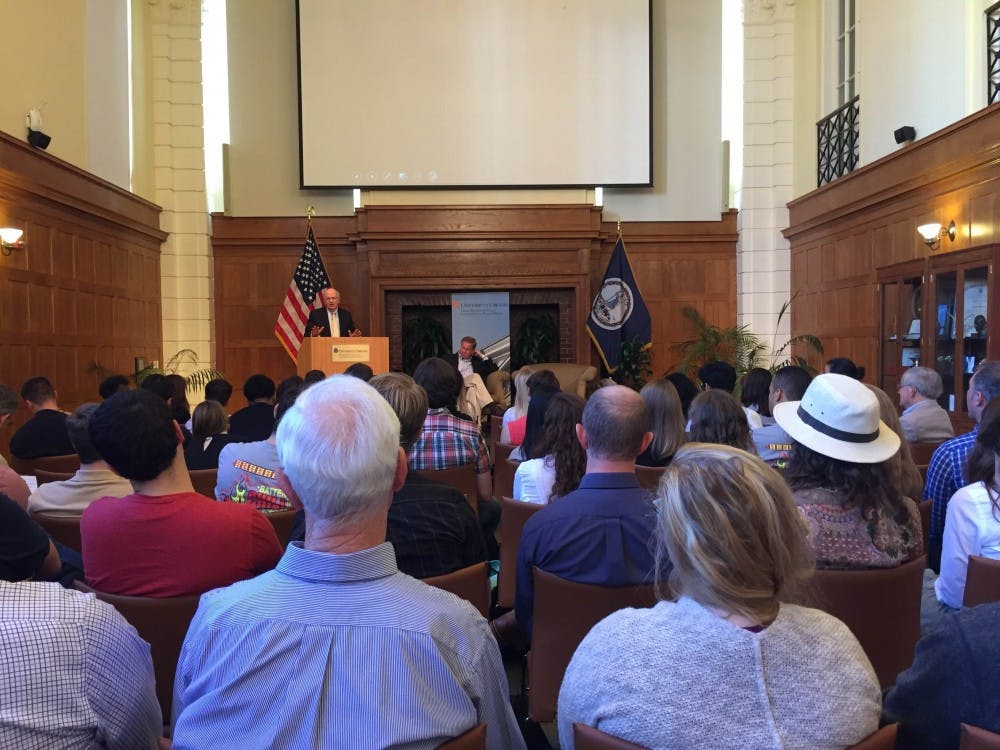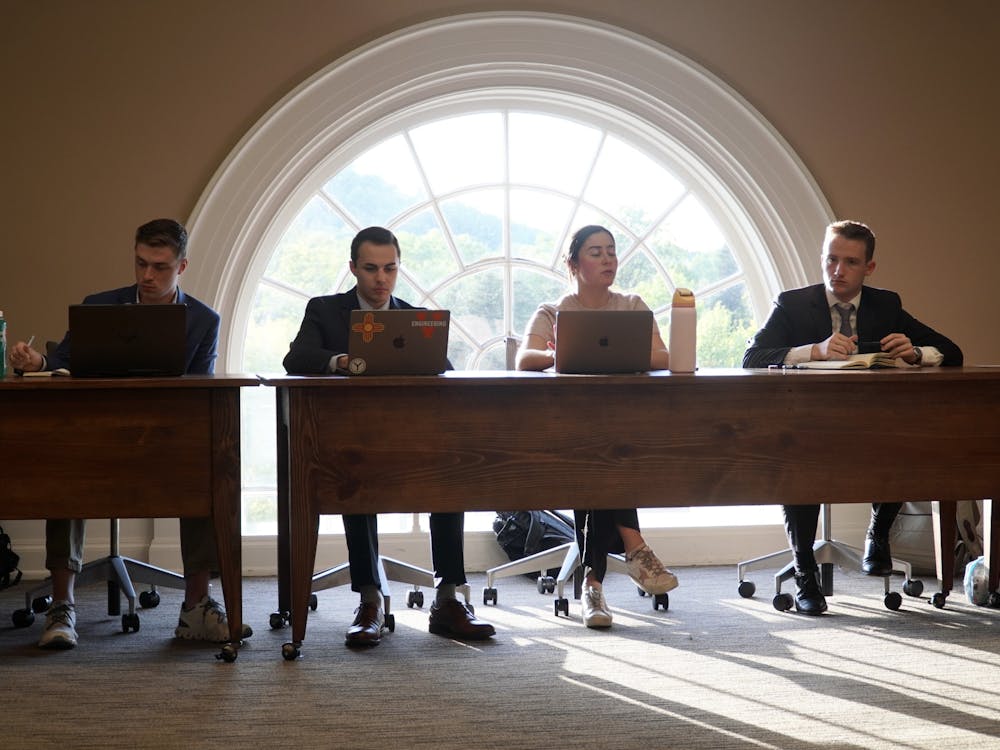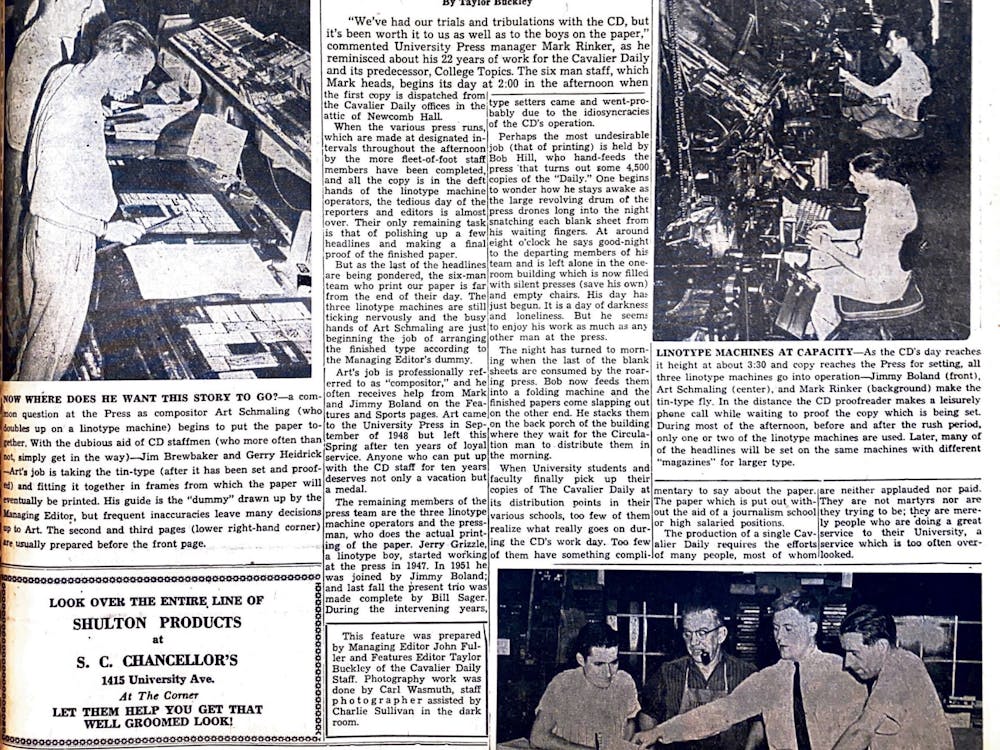Two former U.S. Congressmen spoke Thursday at the Batten School regarding the importance of political bipartisanship, which they said is currently lacking.
Martin Frost, the Democratic representative of Texas’s 24th Congressional District from 1979 to 2005, was joined by Tom Davis, a seven-term Republican representative of Virginia’s 11th Congressional District
Batten graduate student Brendan Maupin Wynn began organizing the event after reading the politicians’ joint book, “The Partisan Divide,” which discusses the problem of partisanship in Congress and how to address it, Wynn said.
“I wanted public policy students to understand what they’re up against in modern politics when they’re making public policy,” he said. “These two guys were the best possible people — they know what’s wrong with our system and what needs to be done.”
Davis blamed extreme partisanship on gerrymandered districts, new forms of media and the large sums of money funneled into politics.
The Internet also contributes, allowing the spread of biased information that can often influence voters, he said.
“People really believe this stuff, and it adds to the polarization,” Davis said.
Davis also took on the rise of super PACs.
“The money is shifting from the candidates to super PACs,” Davis said. “It’s shaping the way representatives and state legislatures behave.”
Frost said he believes redrawing voting districts, and reversing gerrymandering, could increase bipartisanship.
One way to do this is for state legislatures to form bipartisan committees to draw election districts, he said. However, only five states have committees currently dedicated to preventing gerrymandering.
Drawing districts differently could prevent ideologically polarized districts, thereby increasing competition, and hopefully compromise, between political parties.
“We need incentives for people to cross party lines and talk to each other,” Frost said.
Primary elections often increase a sense of partisanship, Frost and Davis said. Citizens who vote in primaries often hold more extreme beliefs, and candidates reflect those extreme views to appeal to their electorate.
In past presidential elections, Davis said, the extreme candidates received the most support in the primaries. More moderate candidates gained support closer to the general election.
“Things are going to move around a lot in the next two months,” Davis said on the current 2016 presidential race.
Part of the problem with a lack of bipartisanship is the potential for alienation of young Americans, as evidenced by Congress’s low approval rates, which Frost said stem from this lack of bipartisanship.
“We don’t want young people to be turned off from the government,” he said. “We want young people to take part in government because that’s what makes a strong country.”





